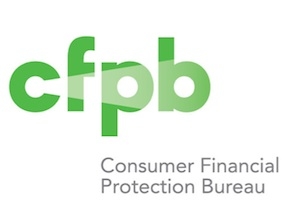Advertisement
CFPB Unveils New Remittance Rule

The Consumer Financial Protection Bureau (CFPB) proposed a rule that would allow it to supervise certain non-bank international money transfer providers for the first time. The proposed rule would bring new oversight to larger nonbank international money transfer providers, to make sure they are adhering to the CFPB’s new protections for consumers sending money abroad.
“The CFPB’s Remittance Rule provides strong consumer protections like better disclosures and the correction of errors,” said CFPB Director Richard Cordray. “Today’s proposed rule would help us provide oversight across the entire market so consumers get the protections they deserve.”
U.S. consumers send funds abroad for a number of reasons, like assisting family or friends with their expenses or purchasing goods. Pricing for international money transfers is complex and may depend not only on fees and taxes, but also on exchange rates. Prior to the passage of the Dodd-Frank Wall Street Reform and Consumer Protection Act (Dodd-Frank Act), international money transfers were generally not covered by federal consumer protection regulations.
The Dodd-Frank Act expanded the scope of the Electronic Fund Transfer Act to provide protections for consumers who send remittance transfers. In October 2013, the CFPB’s Remittance Rule, which implements these new protections for consumers who send remittance transfers, went into effect.
CFPB examiners already have the authority to assess the largest banks’ and credit unions’ compliance with the Remittance Rule. The CFPB’s proposed rule would also subject any nonbank international money transfer provider that provides more than 1 million international money transfers annually to the CFPB’s supervisory authority. The Bureau estimates that nonbank providers transfer approximately $50 billion annually through about 150 million individual international money transfers. The Bureau estimates that the proposed rule would bring new oversight to about 25 of the largest providers in the market.
Under the proposal, CFPB examiners would be able to examine larger nonbank international money transfer providers for compliance with the Remittances Rule. Examiners would be looking to ensure that these nonbanks are offering protections that are now required such as:
►Better Disclosures: Under federal law, remittance transfer providers must generally disclose information about the exchange rate, fees, the amount of money that will be delivered abroad, and the date the money will be available. Consumers generally receive these disclosures in English and sometimes in other languages.
►Option to Cancel: Typically, consumers have at least 30 minutes after payment to cancel a remittance if it has not yet been received. If they cancel within the 30-minute window, they will get their money back regardless of the reason the consumer wants to cancel.
►Correction of Errors: Remittance transfer providers are held accountable for certain types of errors. If a remittance sender reports a problem with a transfer within 180 days, the provider must generally investigate and correct certain errors. Companies that provide remittance transfers may also be responsible for mistakes made by their agents.
The Dodd-Frank Act gave the CFPB authority to supervise “larger participants” in consumer financial markets as defined by rule. The Bureau can oversee larger participants’ activity to ensure compliance with federal consumer financial laws. If the rule is finalized, the proposal would be the Bureau’s fourth larger participant rule. The first three rules involved markets for student loan servicing, debt collection, and consumer reporting.
About the author




